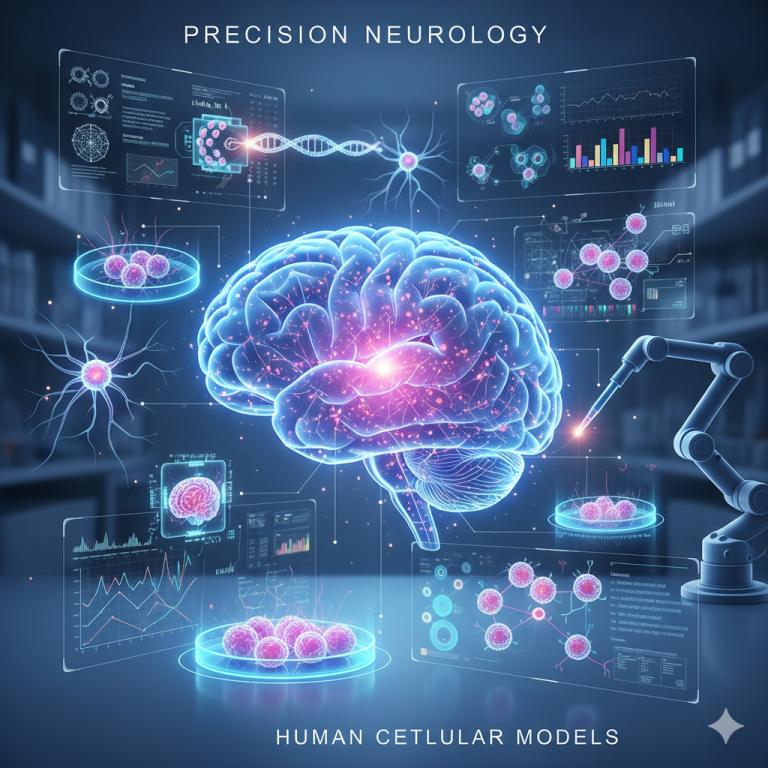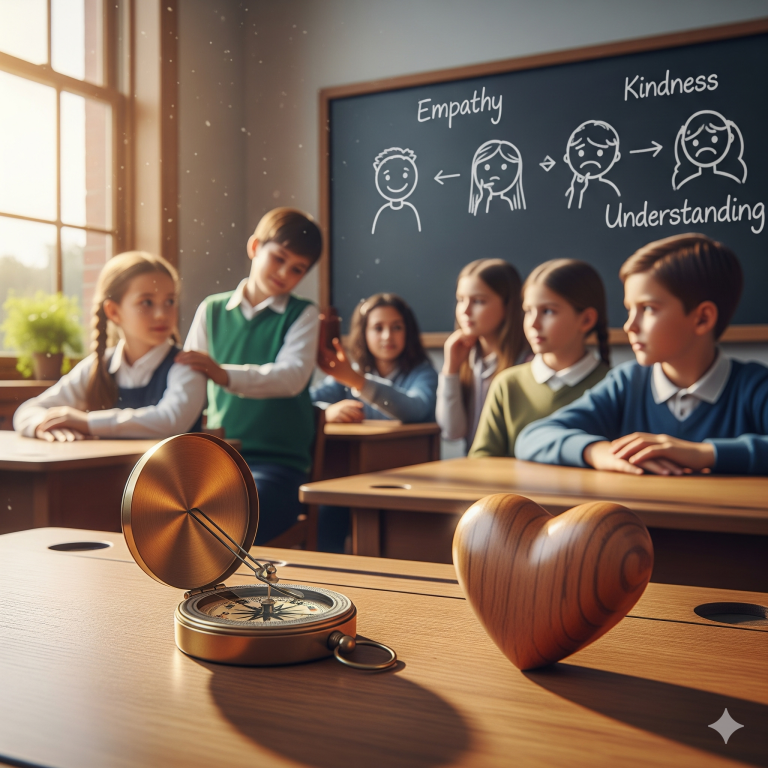
In the quiet corridors of education, a revolution is stirring. For centuries, schools have been places where the currency of success was measured in marks, rankings, and grades. Students marched through their years in pursuit of test scores, their value distilled into letters and numbers on paper. Yet a seismic shift is underway. More educators, parents, and researchers are questioning whether the system’s obsession with standardized metrics truly prepares young people for the complexity of life.
The answer increasingly points toward something both intangible and profound: emotional intelligence. It is not a new textbook, a new syllabus, or a new gadget, but rather a recognition that feelings, empathy, resilience, and trust shape the foundation of meaningful learning. In the twenty-first century, schools are learning to cultivate not only sharp minds but compassionate hearts.
Rethinking Success: Why Emotional Intelligence Matters More Than Grades
Success has long been defined by achievement in exams. High marks led to prestigious schools, then to desirable jobs, then to social status. Yet the scaffolding of this belief system is eroding. Employers are signaling that technical skills alone no longer suffice; adaptability, teamwork, and empathy often eclipse the ability to recite facts.
Children who excel at memorization but lack the capacity to manage stress, regulate emotions, or communicate effectively may stumble in workplaces and relationships. Conversely, those with strong emotional awareness often find themselves better equipped to handle pressure, navigate conflict, and inspire trust.
The reframing of success demands courage: courage for parents to accept that their child’s worth cannot be distilled into test scores, and courage for schools to recalibrate their values. Emotional intelligence, long treated as secondary, emerges not as an accessory skill but as the cornerstone of lifelong achievement.
From Chalkboards to Compassion: The Changing Role of Teachers
Teachers once stood as transmitters of knowledge, figures of authority dispensing information from chalkboards to passive pupils. But the age of rote memorization is giving way to something far richer. The modern teacher becomes part educator, part mentor, part counselor—a guide who nurtures not just intellect but emotional growth.
Compassion enters the classroom in subtle ways. A teacher who notices the silent distress of a student, who takes time to ask questions beyond academics, who models empathy in interactions with peers, plants seeds that examinations cannot measure. This is not about diluting academic rigor but about humanizing it.
The role of the teacher expands into realms once considered beyond education. Conflict mediation, emotional coaching, creating safe spaces for vulnerability—these become as essential as lesson plans. The chalkboard remains, but it is joined by compassion as an indispensable tool of teaching.
Building Resilient Students Through Emotional Literacy
Resilience is not merely the capacity to endure hardship but the art of bouncing back stronger. Emotional literacy—the ability to identify, articulate, and manage one’s emotions—lies at its core. Schools that prioritize emotional literacy equip students with a toolkit for life’s inevitable storms.
Consider a child who fails an exam. Without emotional literacy, the failure festers into shame or disengagement. With it, the child learns to analyze the feelings, seek support, and approach the challenge with renewed strategies. This transformation changes failure from an end to a beginning.
Programs that embed emotional literacy into daily routines—morning reflections, peer dialogues, mindfulness sessions—help normalize discussions of feelings. Instead of suppressing emotions, students learn to navigate them. Over time, resilience ceases to be an extraordinary trait; it becomes a cultivated habit.
The Science of Feelings: How EQ Shapes Learning and Memory

Neuroscience offers compelling evidence for what educators intuitively know: emotions are not distractions from learning; they are catalysts. The amygdala, hippocampus, and prefrontal cortex—regions of the brain governing memory, attention, and decision-making—intertwine with emotional regulation. Stress and fear shut down learning pathways, while curiosity, joy, and security amplify them.
A student who feels safe and respected engages more deeply with material. Emotional intelligence thus becomes not a soft supplement but a neurological necessity. The science reveals that when schools cultivate positive emotional climates, they are in fact strengthening the architecture of cognition.
This understanding dismantles the myth of separating reason from emotion. Thought and feeling are inseparable allies. To teach without addressing emotions is to attempt building a house without laying the foundation.
Beyond the Classroom: Emotional Intelligence as a Life Skill
The classroom is but a rehearsal space for the stage of life. Emotional intelligence is not confined to academic walls—it stretches into friendships, families, workplaces, and communities.
Students who learn empathy discover the ability to forge deeper relationships. Those who master self-regulation avoid the pitfalls of impulsive decisions. A capacity for perspective-taking nurtures tolerance and reduces prejudice. In a fractured world, these skills become as vital as literacy and numeracy.
Life is unpredictable. Careers evolve, economies falter, technologies disrupt. What endures is the capacity to adapt, to collaborate, to maintain emotional equilibrium amidst chaos. Schools that treat emotional intelligence as a life skill equip students not merely to pass exams but to navigate the vicissitudes of existence with grace.
Barriers and Breakthroughs: Challenges in Teaching EQ
The rise of emotional intelligence in education is not without obstacles. Skepticism lingers among policymakers who demand quantifiable outcomes. How does one measure empathy? Can resilience be graded? Standardized tests struggle to capture the fluid, nuanced growth of emotional intelligence.
Teachers, already burdened with curricula and administrative demands, may find integrating EQ instruction overwhelming. Cultural resistance also plays a role; in some societies, discussing emotions is stigmatized as weakness rather than strength.
Yet breakthroughs are emerging. Innovative programs employ role-play, restorative justice practices, and digital platforms for emotional reflection. Pilot studies demonstrate reduced bullying, higher engagement, and improved academic performance when EQ is emphasized. Step by step, the barriers erode, replaced by a vision of schools as holistic sanctuaries for both minds and hearts.
A New Educational Vision: Balancing Knowledge with Humanity
The future of education lies in synthesis, not substitution. Knowledge remains essential; literacy, mathematics, and scientific reasoning form the scaffolding of modern life. But knowledge without humanity risks creating brilliant minds devoid of empathy.
A new vision takes shape—one where test scores and trust coexist, where excellence is defined not just by intellectual mastery but by the ability to listen, care, and connect. In this vision, schools do not produce test-taking machines but compassionate citizens capable of leading communities with integrity.
Balancing knowledge with humanity is the challenge of our time. It requires systemic reform, cultural courage, and a commitment to seeing children as more than vessels of information. Education, at its truest, is not the filling of a pail but the lighting of a fire—both of intellect and of the heart.
Conclusion
The age of emotional intelligence in schools is not a fleeting trend; it is an evolution. From grades to growth, from tests to trust, the paradigm is shifting. In recognizing the central role of emotions, education reclaims its deepest purpose: preparing human beings not just to think but to live fully, wisely, and compassionately.
The classrooms of tomorrow will be judged not only by the test scores they produce but by the trust they cultivate, the resilience they foster, and the humanity they awaken. And in that measure, true success will be found.




